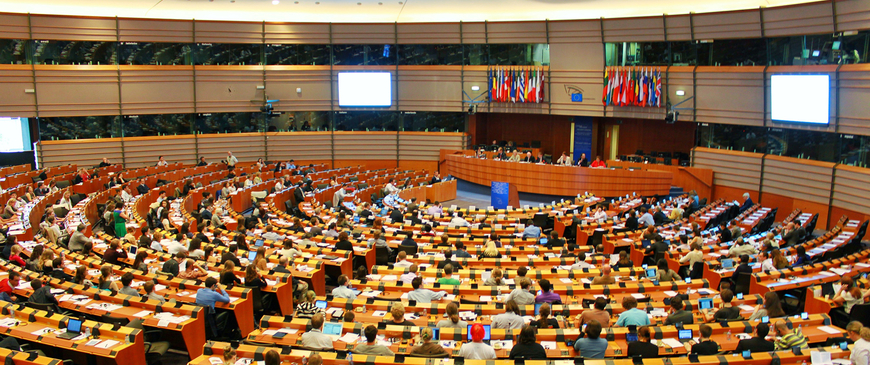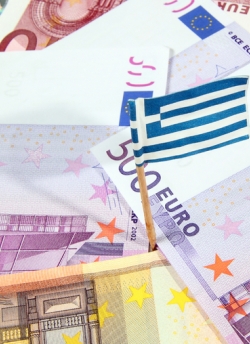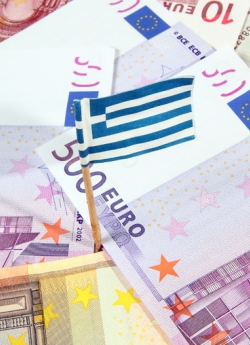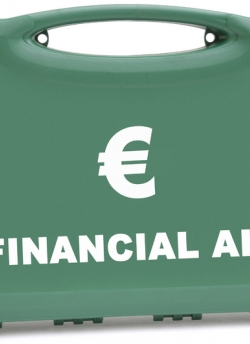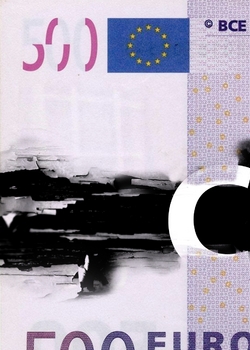Macroeconomics & the euro
Europe doesn’t lack funds, just political will
26 September 2011
Financial Times
The following article was written in response to 'Only the IMF can solve eurozone crisis' by Ragharam Rajan, published in the Financial Times, 26 September 2011.
Het einde van de euro
25 September 2011
NRC Weekend
De beleidsmakers van de eurozone, en vooral de Duitsers en de Nederlanders, zijn niet in staat gebleken uit te stijgen boven hun overmoed en morele betweterij, zodat de eurozone maar heel weinig munitie heeft om de komende financiële storm te trotseren.
La via maestra degli eurobond
10 August 2011
Il sole 24 Ore
Le debolezze istituzionali dell'eurozona sono state messe a nudo. Il tentativo di attuare una politica monetaria comune senza un Tesoro comune è fallito.
Eurobonds or bust
08 August 2011
Project Syndicate
The eurozone’s institutional weaknesses have been laid bare. The attempt to run a common monetary policy without a common treasury has failed.
A real threat of stagnation
08 August 2011
The Voice of Russia
In Europe, or in the US more particularly, we are seeing investors are losing confidence in the ability of various economies, various governments to service their debts.
European leaders must step up their game
11 July 2011
Financial Times
George Soros is right that Germany's new approach to Europe bears some responsibility for the eurozone crisis. Germany's leaders are finding it hard to consider broader European rather than immediate national interests.
A smaller eurozone would be stronger
20 June 2011
The Times
A single European currency has the merit of encouraging trade and investment across frontiers, and thus growth. But countries with inflexible, badly-run economies should never have been allowed to join the euro. The sooner the eurozone shrinks, the sooner it will stabilise.
A country such as Greece with large budget and...
A country such as Greece with large budget and...
Compétitivité ou productivité pour relancer la croissance européenne?
20 June 2011
Les Echos
Une mauvaise compréhension de ce que sont les moteurs de la croissance économique menace la reprise en Europe. Ses dirigeants sont obsédés par la compétitivité et paraissent croire sincèrement que prospérité rime avec excédent commercial.
Europe’s competitiveness trap
16 June 2011
Project Syndicate
A flawed understanding of what drives economic growth has emerged as the gravest threat to recovery in Europe. European policymakers are obsessed with national “competitiveness,” and genuinely appear to think that prosperity is synonymous with trade surpluses.
Greece and Portugal should both go gracefully
12 May 2011
Financial Times
Even as the ink is drying on Portugal's European Union and International Monetary Fund bail-out agreement, evidence is mounting that last year's bail-outs of Greece and Ireland have failed. Far from improving their access to the financial markets, Greece and Ireland face record borrowing costs.
Is Germany flipping the bird at Europe?
22 April 2011
The Guardian
It would have caused a chuckle among British tabloid readers. In Germany (and Greece) it caused a storm. On February 22 2010, the German news magazine Focus published a cover that depicted the Aphrodite of Milos with an outstretched arm making a very rude gesture at its readers.
The price of German leadership
17 November 2010
Financial Times
The euro, the European Union’s boldest and most ambitious project, is under threat. Divisions among Europe’s leaders, and their inability to stabilise the euro, have damaged the EU’s reputation on other continents. The good news is that the EU now has an emerging leader.
Why Germany is not a model for Europe
10 November 2010
Der Tagesspiel
Germany's economy has been winning numerous plaudits of late. It is not hard to see why. Previously much-vaunted economies "Ireland, Spain, the UK and the US, to name just four" lived way beyond their means for far too long.
EU economic reforms fall short on growth
30 September 2010
Financial Times
The European Commission announced proposals for reform of eurozone governance on Wednesday, calling for closer monitoring of member states’ public finances and tougher penalties for alleged fiscal ill-discipline.
How to fix the eurozone
27 September 2010
International Herald Tribune
A recent European Union meeting to review blueprints for better management of the euro got overshadowed by a noisy row over France’s decision to send scores of Roma – or gypsies – back to Bulgaria and Romania.
The strategic consequences of the euro crisis
01 September 2010
Europe's world
The euro crisis will be with us for many years. The underlying causes, such as southern Europe's lack of competitiveness, cannot be remedied overnight; Greece, Italy, Portugal and Spain face years of low growth, severe curbs on public spending and perhaps social unrest.
The euro's success requires liberalisation
26 August 2010
The Wall Street Journal
Critics of the euro zone have long claimed that it suffers from structural flaws that threaten its long-term survival. The Greek sovereign-debt crisis has done much to vindicate these misgivings.
Germany's euro advantage
13 July 2010
International Herald Tribune
Prior to the introduction of the euro, European economies running big trade deficits routinely devalued their currencies against the Deutschmark and other currencies tied to it. This prompted allegations of beggar-thy-neighbor activity and even calls for protectionism.
Merkels bezuiniging is onverantwoordelijk
14 June 2010
NRC Handelsblad
Het Duitse besluit om sterk te gaan bezuinigingen is volkomen verkeerd. De Duitsers moeten juist gaan consumeren, betoogt Simon Tilford.
Elke economie in de eurozone slaat halsoverkop aan het hakken in de overheidsuitgaven. Het lijdt geen twijfel dat de eurozone en de EU als geheel een grote uitdaging op begrotingsterrein te...
Elke economie in de eurozone slaat halsoverkop aan het hakken in de overheidsuitgaven. Het lijdt geen twijfel dat de eurozone en de EU als geheel een grote uitdaging op begrotingsterrein te...
EU learnt from Greek experience
09 May 2010
Financial Times
Sir, Lex on the Portuguese bail-out (May 4) implies that the International Monetary Fund would have imposed more rigorous criteria on the crisis-hit country than the “soft-touch” European Union.

